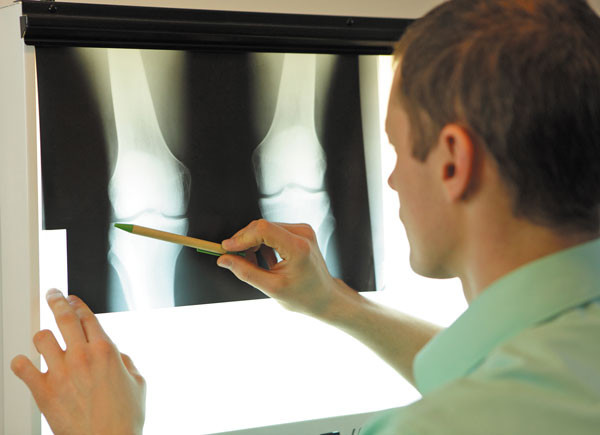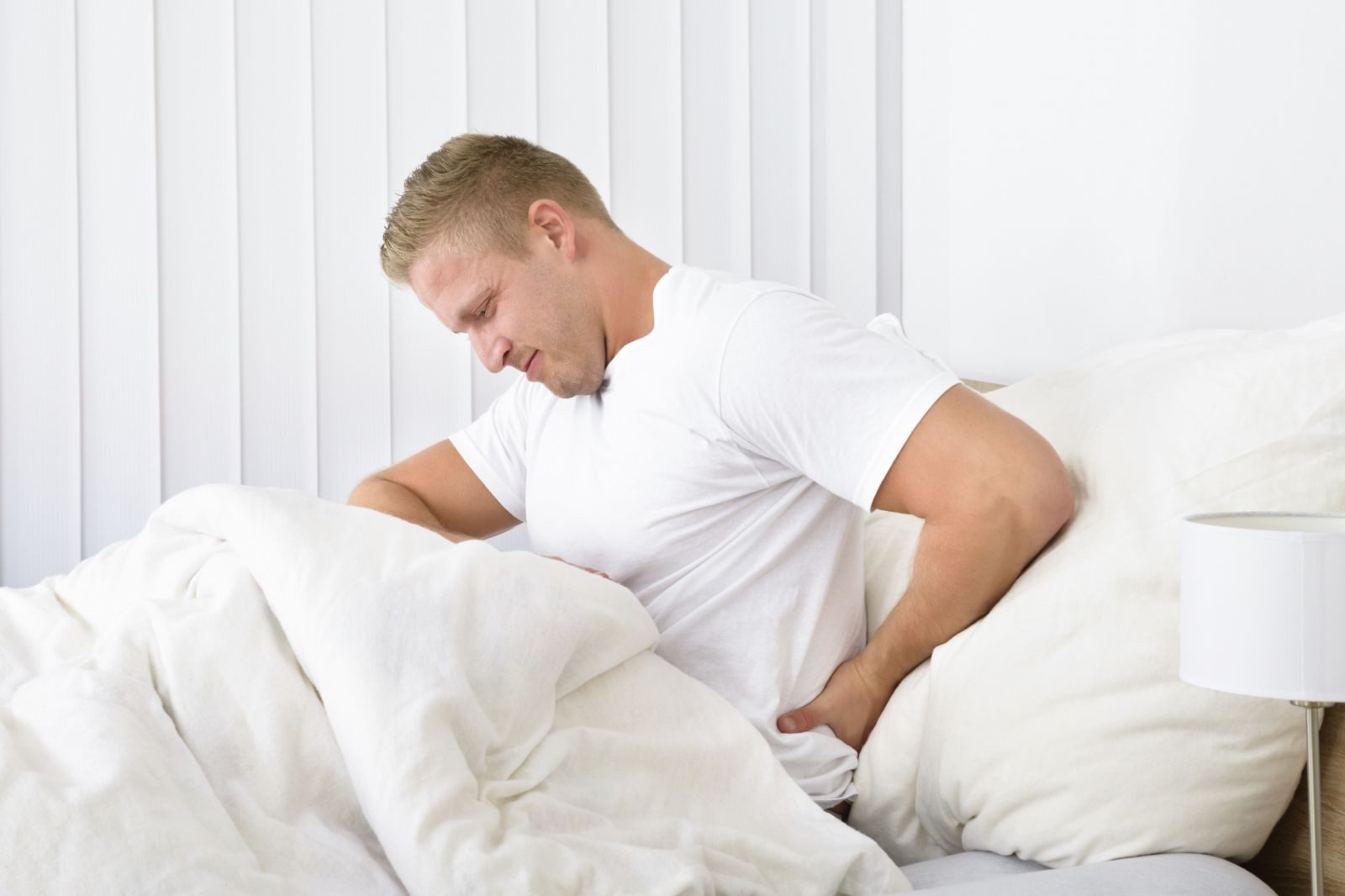
Respiratory health harms often follow flooding: Taking these steps can help

Tips to leverage neuroplasticity to maintain cognitive fitness as you age

Can white noise really help you sleep better?

Celiac disease: Exploring four myths

What is prostatitis and how is it treated?

What is Cushing syndrome?

Exercises to relieve joint pain

Think your child has ADHD? What your pediatrician can do

Foam roller: Could you benefit from this massage tool?

Stepping up activity if winter slowed you down
Pain Archive
Articles
Short circuit migraines before they start
Author and migraine sufferer Joan Didion once wrote, "That no one dies of migraine seems, to someone deep into an attack, an ambiguous blessing." At that time, migraines weren't something that could be prevented. Today, that's a possibility for some people who have severe migraines, frequent migraines (more than three or four times a month), or migraines that don't respond well to treatment.
The cornerstone of migraine prevention is managing triggers like stress or certain foods or strong perfumes. Alternative and complementary therapies (like acupuncture) help some migraine sufferers keep headaches at bay.
Emergencies and First Aid - How to Make a Sling
How to Make a Sling
1. To make a sling, cut a piece of cloth, such as a pillowcase, about 40 inches square. Then cut or fold the square diagonally to make a triangle. Slip one end of the bandage under the arm and over the shoulder. Bring the other end of the bandage over the other shoulder, cradling the arm. | 2. Tie the ends of the bandage behind the neck. Fasten the edge of the bandage, near the elbow, with a safety pin. |
Collar and Cuff Sling |
Use a collar and cuff sling for a suspected fracture of the collarbone or elbow when a triangular sling is not available. Wrap a strip of sheet, a pants leg, or pantyhose around the wrist and tie the ends behind the neck. |
Emergencies and First Aid - How to Splint a Fracture
How to Splint a Fracture
For a lower arm or wrist fracture (left), carefully place a folded newspaper, magazine, or heavy piece of clothing under the arm. Tie it in place with pieces of cloth. A lower leg or ankle fracture (right) can be splinted similarly, with a bulky garment or blanket wrapped and secured around the limb. A person with a hip or pelvis fracture should not be moved. If the person must be moved, the legs should be strapped together (with a towel or blanket in between them) and the person gently placed on a board, as for a back injury. | |
X-ray may be best screening tool for diagnosing knee pain
A simple x-ray may be a better and cheaper way to diagnose knee arthritis than an MRI, according to researchers. X-rays are also cheaper than MRIs and quicker to perform.
Possible link between shoulder problems and heart disease risk
Shoulder pain appears to be associated with risk factors for heart disease. Researchers found that people with the most heart disease risk factors, like high cholesterol, high blood pressure, and diabetes, were almost five times more likely to also have shoulder trouble.
The downside of taking pills to treat chronic pain
When the risks of medication outweigh the benefits.
Image: © iStock
Taking over-the-counter or prescription painkillers may seem like a simple solution for chronic pain. It's actually a bit more complicated, yet many older adults aren't aware of potential problems. "They think that if it doesn't require a prescription, it's safe. But there are some long-term health risks," says Dr. Edgar Ross, director of the Pain Management Center at Harvard-affiliated Brigham and Women's Hospital.
Here's what you should know about some commonly used pain relievers.
Emergencies and First Aid - Back Injuries
Unless the person is able to tell you to the contrary, assume that anyone with a back injury also has a neck injury.
Place a board, such as a door or table leaf, next to the person. The board should extend below the buttocks (ideally to the feet) and above the head. Keeping the head aligned with the rest of the body, gently logroll the person toward you. Move the board under the person and ease him or her onto it. If the person is vomiting, lay him or her on one side and continue to support the head.
Bed rest for back pain? A little bit will do you.
Bed rest, once a key part of treating back pain, has a limited role in healing sore backs. In very small doses, bed rest can give you a break when standing or sitting causes severe pain. Too much may make back pain worse. Here is how to do bed rest "right."
To get the most from staying in bed, limit the time you are lying down to a few hours at a stretch, and for no longer than a day or two. You can rest on a bed or sofa, in any comfortable position. To ease the strain on your back, try putting pillows under your head and between your knees when lying on your side, under your knees when lying on your back, or under your hips when lying on your stomach. These positions reduce forces that sitting or standing impose on the back — especially on the discs, ligaments, and muscles.
Are painkillers also killing your hearing?
| Image: iStock |
When you think of risk factors for hearing loss, over-the-counter pain relievers probably aren't among them. But a Harvard study published in the American Journal of Epidemiology suggests that frequent use of ibuprofen (Advil, Motrin) or acetaminophen (Tylenol) may be an important contributor. In the study, women who took the pain relievers at least twice a week were more likely to experience hearing loss, and more frequent usage increased the risk by up to 24%. The findings are similar to a study of men and hearing loss, although aspirin was also found to contribute to risk in that study.
Researchers speculate that the pain relievers may be damaging the cochlea, the snail-shaped hearing mechanism in your inner ear. "Ibuprofen can reduce blood flow to the cochlea, which could result in cellular damage and cell death. Acetaminophen may deplete the antioxidant glutathione, which protects the cochlea from damage," says study author Dr. Sharon Curhan, instructor in medicine at Harvard Medical School.
Does this mean you should think twice before popping a pill for headache or back pain? These medicines do provide good pain relief for many people. "However, frequent use of these medications and use over long periods of time may increase the risk of hearing loss and may cause other adverse health effects. Therefore, it is important to take these medications mindfully and to limit their use as much as possible," says Dr. Curhan. As always, talk to your doctor before making any changes in your medication use.
To learn more about the things that can threaten your hearing, and what you can to do keep this sense sharp and clear, buy Hearing Loss: A guide to prevention and treatment, a Special Health Report from Harvard Medical School.

Respiratory health harms often follow flooding: Taking these steps can help

Tips to leverage neuroplasticity to maintain cognitive fitness as you age

Can white noise really help you sleep better?

Celiac disease: Exploring four myths

What is prostatitis and how is it treated?

What is Cushing syndrome?

Exercises to relieve joint pain

Think your child has ADHD? What your pediatrician can do

Foam roller: Could you benefit from this massage tool?

Stepping up activity if winter slowed you down
Free Healthbeat Signup
Get the latest in health news delivered to your inbox!
Sign Up









